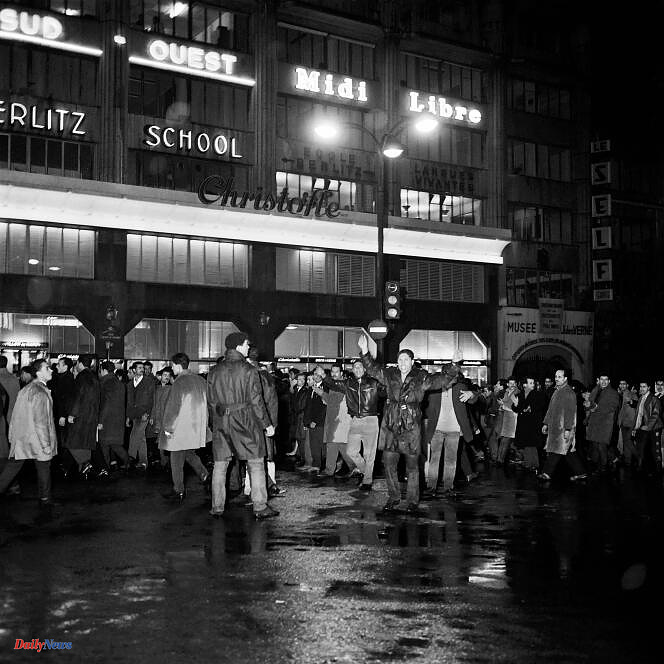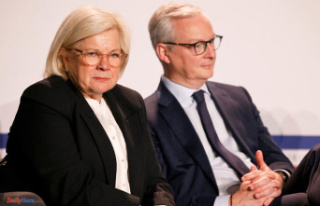The National Assembly voted on Thursday, March 28, for a text asking the government to establish a day of commemoration of the massacre of October 17, 1961 in Paris, during which between thirty and more than 200 Algerian demonstrators died, according to historians . Sixty-seven deputies voted for and eleven against, from the ranks of the National Rally.
The ecologist MP for Hauts-de-Seine Sabrina Sebaihi is at the origin of the text, but her writing was the subject of frequent exchanges with the Elysée, in a context where questions of memory still weigh heavily in relations between the France and Algeria.
The proposed resolution carried by Ms. Sebaihi and her colleague Julie Delpech (Renaissance) calls for “recognition and condemnation of the massacre (…) committed under the authority of the prefect of police at the time, Maurice Papon”, underlines the presentation motifs. He requests “the inclusion of a day of commemoration of the massacre of October 17, 1961 in the agenda of official days and national ceremonies”.
Progressive recognition of a “bloody repression”
Sixty-three years ago, some 30,000 Algerians who came to peacefully demonstrate in Paris suffered violent repression from the police. The official toll of three dead and around sixty injured is far below the estimates of historians, who record “at least several dozen” deaths.
Emmanuel Macron initiated this recognition in October 2021, by declaring that “the crimes committed on October 17, 1961 under the authority of Maurice Papon are inexcusable for the Republic”. Paris announced in December of the same year expanded access to archives on the Algerian War (1954-1962).
In 2012, the president, François Hollande, had already paid “tribute to the victims” of a “bloody repression” which had fallen on these men demonstrating for “the right to independence”.
The adoption of the text could encourage the Elysée to organize a commemoration, insists Ms. Sebaihi, while the Algerian President, Abdelmadjid Tebboune, is due to make a state visit to France "at the end of September-beginning of October", as announced by the Elysée two weeks ago. During a telephone interview, Mr. Macron and his Algerian counterpart welcomed, “with regard to questions of memory, (…) the recent progress of the Franco-Algerian Joint Commission of Historians chaired by Professors Mohamed Lahcen Zeghidi and Benjamin Stora, who will meet again in April.”












